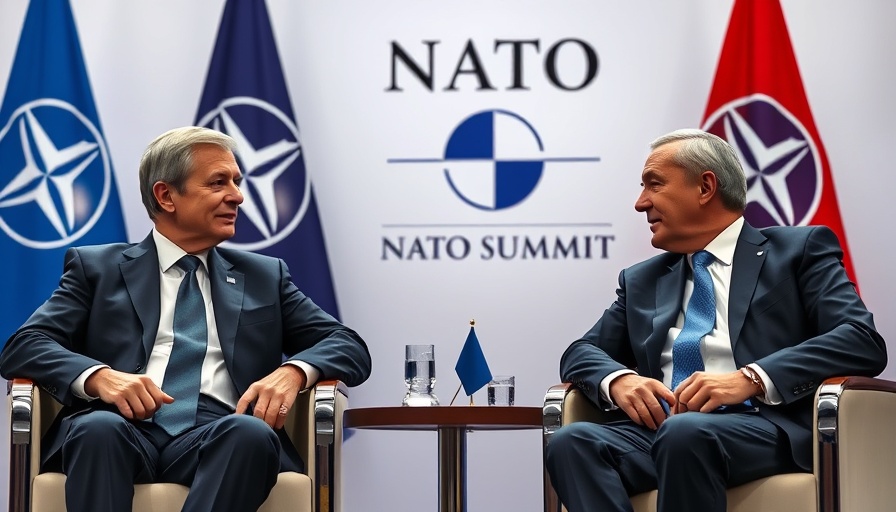
Trump’s Stark Claims About Iran’s Nuclear Program
In a recent press conference, U.S. President Donald Trump asserted that Iran has not agreed to inspections of its nuclear facilities or abandoned its uranium enrichment efforts. This declaration underlines the increasing tension surrounding Iran's nuclear ambitions and the international response to it. Trump stated, “I would say it’s set back permanently,” implying that any future endeavors by Iran to restart its nuclear program would be complicated by the previous military interventions.
The Context of Nuclear Inspections
The lack of inspections is a critical point of contention. The United Nations’ nuclear watchdog has confirmed that it withdrew its last remaining inspectors from Iran, which raises concerns about the transparency and accountability of Tehran's nuclear activities. Trump’s comments mirror the sentiments of many in the international community who worry that without a rigorous inspection regime, Iran could more easily pursue nuclear weapons capabilities, which Tehran maintains is purely for peaceful purposes.
The Broader Implications for U.S.-Iran Relations
This assertion from Trump comes at a time when diplomatic engagements are at a standstill. Trump’s upcoming discussions with Israeli Prime Minister Benjamin Netanyahu will likely focus heavily on Iran, highlighting the continued reliance on military action and political pressure rather than diplomatic negotiations. The recent military strikes by Israel raise the stakes even further, signaling a potential hardline approach against any perceived threat from Iran.
Understanding the Regional Dynamics
The geopolitical landscape of the Middle East makes the situation more complex. Iran’s nuclear program is often viewed within the context of U.S.-Israeli relations and their mutual concerns about a nuclear-armed Iran. Countries involved in these discussions are constantly weighing their options—be it military action or sanctions—against the backdrop of the ongoing conflicts that pervade the region.
Strategies for Investing Amid Political Turmoil
Global political tensions have immediate implications for investors. For those involved in the stock market, particularly in sectors sensitive to geopolitical developments such as energy and defense, understanding these dynamics is crucial. Strategies such as portfolio diversification can help mitigate risks associated with instability in areas like the Middle East. Investors might consider growth stocks and defensive investments as potential avenues in times of uncertainty.
Alternative Investments: A Hedge Against Volatility
Given the increasing volatility in global markets influenced by geopolitical tensions, alternative investments such as real estate investment trusts (REITs) or commodities present opportunities for diversifying portfolios. Investing in gold, for example, has historically served as a safe haven during times of political instability.
Monitoring Economic Indicators for Financial Planning
As the situation evolves, monitoring economic indicators will be crucial. Investors should pay attention to changes in interest rates, inflation, and dollar performance as these elements can heavily influence market dynamics. Engaging with investment education resources and tools can provide insights into managing portfolios effectively and adapting strategies accordingly.
Final Thoughts on Market Adaptability
In summary, as Trump navigates the increasingly complex situation with Iran, investors must remain vigilant and adaptable. By staying informed on political developments and understanding their financial implications, market participants can better protect their investments against potential downturns triggered by geopolitical conflicts.
 Add Row
Add Row  Add
Add 



Write A Comment